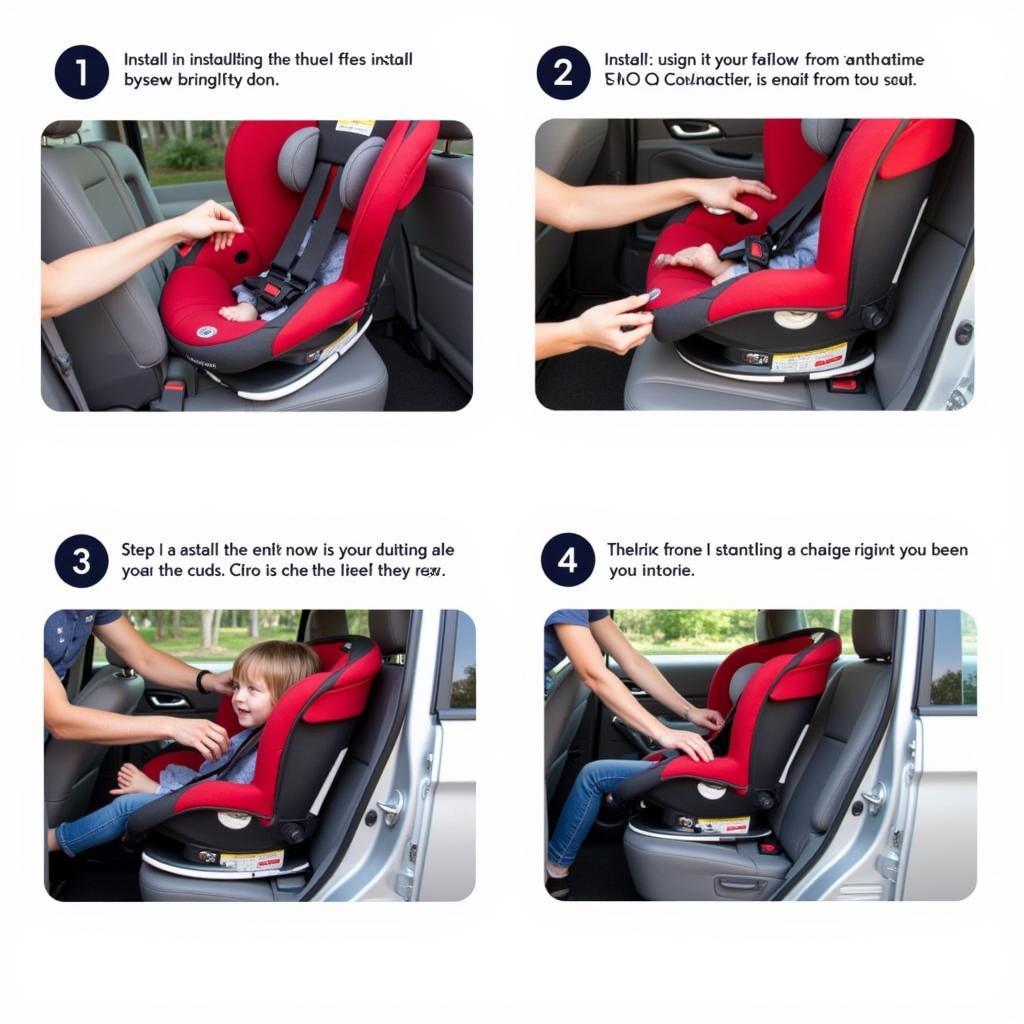The mountain car problem, a classic reinforcement learning challenge, has captivated programmers and AI enthusiasts for years. This article delves into the intricacies of solving this problem using Python, providing a comprehensive guide for both beginners and experienced programmers. We’ll explore various approaches, discuss the underlying principles, and equip you with the knowledge to conquer this fascinating puzzle.
Understanding the Mountain Car Challenge
The mountain car problem presents a seemingly simple yet deceptively complex scenario: a car situated in a valley between two hills needs to reach a flag positioned atop the rightmost hill. The catch? The car’s engine lacks the power to directly climb the steep incline. Success hinges on building momentum by oscillating back and forth, strategically harnessing potential energy to eventually reach the goal. This problem serves as a benchmark for testing various reinforcement learning algorithms and control strategies.
What makes the mountain car problem so intriguing is its representation of real-world control problems. Imagine maneuvering a robot arm in a confined space or optimizing a complex system with limited resources. The principles learned here translate to numerous practical applications.
Tackling the Problem with Python
Python, with its rich libraries and intuitive syntax, offers a powerful platform for solving the mountain car problem. Libraries like OpenAI Gym provide a readily available environment for simulating the problem, while libraries like TensorFlow and PyTorch enable the implementation of sophisticated reinforcement learning algorithms.
Setting Up Your Python Environment
Before diving into the code, you need to set up the necessary Python environment. This involves installing the required libraries, such as OpenAI Gym, NumPy, and your chosen reinforcement learning library. A virtual environment is highly recommended to keep your project dependencies organized.
Choosing Your Reinforcement Learning Algorithm
Several reinforcement learning algorithms can be employed to solve the mountain car problem, each with its strengths and weaknesses. Popular choices include Q-learning, SARSA, and Deep Q-Networks (DQN). The choice of algorithm depends on the complexity you’re willing to handle and the desired performance.
Q-Learning: A Practical Approach
Q-learning is a model-free reinforcement learning algorithm that learns an action-value function, or Q-function, which estimates the expected cumulative reward for taking a specific action in a given state.
Implementing Q-learning in Python
Implementing Q-learning involves creating a Q-table to store the Q-values for each state-action pair. The algorithm iteratively updates the Q-values based on the rewards received from the environment. Exploration and exploitation strategies, such as epsilon-greedy, are crucial for efficient learning.
Deep Reinforcement Learning: DQN
For more complex scenarios, Deep Q-Networks (DQN) offer a powerful alternative. DQN utilizes a neural network to approximate the Q-function, allowing for handling continuous state spaces. used car problems within 30 days tennessee DQN has shown remarkable success in solving challenging reinforcement learning problems, including the mountain car.
“The mountain car problem, though seemingly simple, provides valuable insights into the complexities of reinforcement learning,” says Dr. Emily Carter, a leading AI researcher. “Mastering this problem equips you with fundamental skills applicable to a wide range of real-world applications.”
Conclusion
The mountain car problem serves as an excellent entry point into the world of reinforcement learning. By leveraging Python and its powerful libraries, you can explore various algorithms, from Q-learning to DQN, to conquer this challenging puzzle. Solving this problem not only enhances your understanding of reinforcement learning principles but also provides a foundation for tackling more complex control problems. Connect with us at AutoTipPro for further assistance. Our contact information is: +1 (641) 206-8880, 500 N St Mary’s St, San Antonio, TX 78205, United States. used car problems within 30 days tennessee
FAQ
- What is the mountain car problem in reinforcement learning?
- How can I use Python to solve the mountain car problem?
- Which reinforcement learning algorithms are suitable for the mountain car problem?
- What is Q-learning and how does it apply to the mountain car problem?
- What are Deep Q-Networks (DQN) and why are they useful for this problem?
- Where can I find Python code examples for solving the mountain car problem?
- What are some real-world applications of the principles learned from the mountain car problem?





Leave a Reply